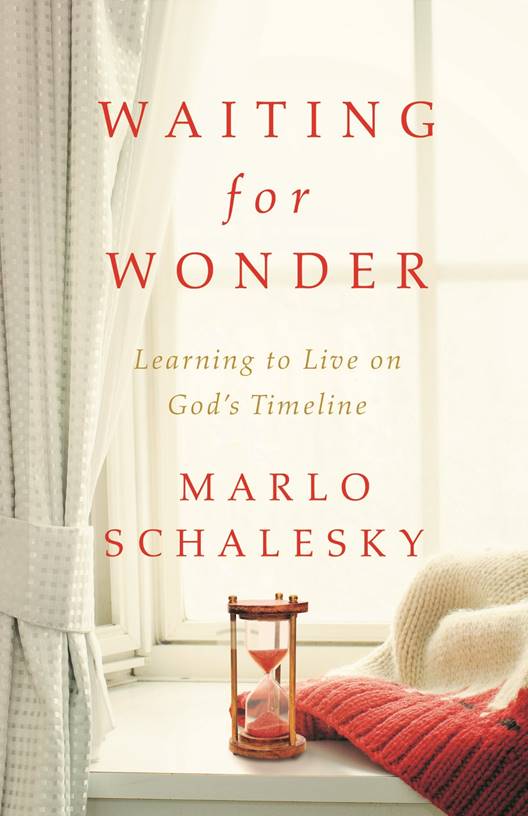Some thoughts on the mystery of Christmas from the life of Mary and my book Wrestling with Wonder ...
Living with Mystery
The encounter with the shepherds is told in simple terms. They hurry to Bethlehem to find Mary, Joseph, and the baby who is lying in the manger. And when they’ve seen him, they go off and tell everyone what they’ve seen and heard. People are amazed.
But they aren’t transformed. They are simply wowed by a wow-worthy story.
Mary, however, doesn’t say “wow.” Instead, she says, “hmmm …”
Why?
Because I think she sees the incongruities.
She doesn’t just take a glance at a babe in a manger. She holds him, encounters him, and so is able to see the truth – that the angel’s proclamation of “a Savior has been born to you; he is the Messiah” (v. 11) does not sit comfortably with “you will find a baby wrapped in cloths and lying in a manger.” (v. 12) There should not be a Messiah in a Manger. That just doesn’t make sense.
So she treasures up what she’s heard and seen, and she ponders in her heart. In the Greek, the word for “ponder” also means to bring together, to meet. So, we have the idea of bringing together disparate ideas in her mind and mulling over what they might mean.
She grapples with ideas that don’t easily come together and make sense, because she encounters, as a babe in a manger, a God who does not always make sense. She encounters a God who asks her not to have it all figured out with tidy explanations and clear conclusions, but to wrestle with the mysteries of who this Messiah-God really is.
Here are just a few mysteries to be treasured, to be pondered:
--Angels who don’t come to sing for their King, but show up to shepherds. Now that doesn’t make sense.
--A Messiah lying in a feeding trough. Now that doesn’t make sense. St. Francis of Assisi wrote in a letter: “Though he was wealthy beyond reckoning, he still willingly chose to be poor with his blessed mother.” And we know that God intended it that way because the angel sent the shepherds not to a barn or a house or a street or an address. He sent them to a manger. “This will be a sign to you,” he said, “You will find a baby wrapped I cloths and lying in a manger.”
--A Redeemer in rags. Now that doesn’t make sense. Seventh century English monk Bede writes, “It should be noted that the sign given of the Savior’s birth is not a child enfolded in Tyrian purple, but one wrapped with rough pieces of cloth …”
If, like Mary, we are close enough to Jesus to hold him, to be near him, to be in a real relationship with him over time, we too will encounter mystery. We come up against truths that are hard to reconcile but are true all the same. We will have to wrestle, and wonder. Treasure and ponder.
But if, like the shepherds, we only travel once to the manger, we take a glance to corroborate what we’ve been told, then leave to other tasks (even good ones), then we will see the baby. We will confirm what we’d hoped to be true. But we will miss the mystery. We will not encounter the deeper things of God. We will have no treasure to ponder.
So often we think that the closer we are to Christ, the more answers we must have. But Mary teaches us that is not necessarily true. The shepherds have no questions, no doubts, no wonderings. But Mary does. The one who has carried him in her womb, held him in her arms, is the one who has no answers. She is the one who ponders the paradoxes and treasures them in her heart.
She is called to live with the mystery of a messiah who is already so different from what she could have imagined. She ponders and treasures the mystery of things that cannot yet make sense.
The question is, will we?
Why is it that so often we feel we need to make explanations for what God is doing in our lives and in the lives of those around us? If the shepherds came to us, would we explain why the babe was in a feeding trough? Would we excuse the stink, the poverty, the rough rags and splintered wood? Would we spout platitudes or deny the strangeness of what is true?
Would we say:
It’s not really that bad. (It’s not really a feeding trough.)
I don’t mind. (I didn’t want a real room.)
God is good, so I have nothing to complain about. (These aren’t really rags.)
What if instead we saw God for who he really is? The God who provides only a trough for his own Son’s crib. The God who sends shepherds to a baby wrapped in rags. The God who leaves heaven to become a baby in poverty. The God who does things in our lives that we don’t understand, that don’t seem to make sense, that aren’t supposed to … yet.










0 comments:
Post a Comment